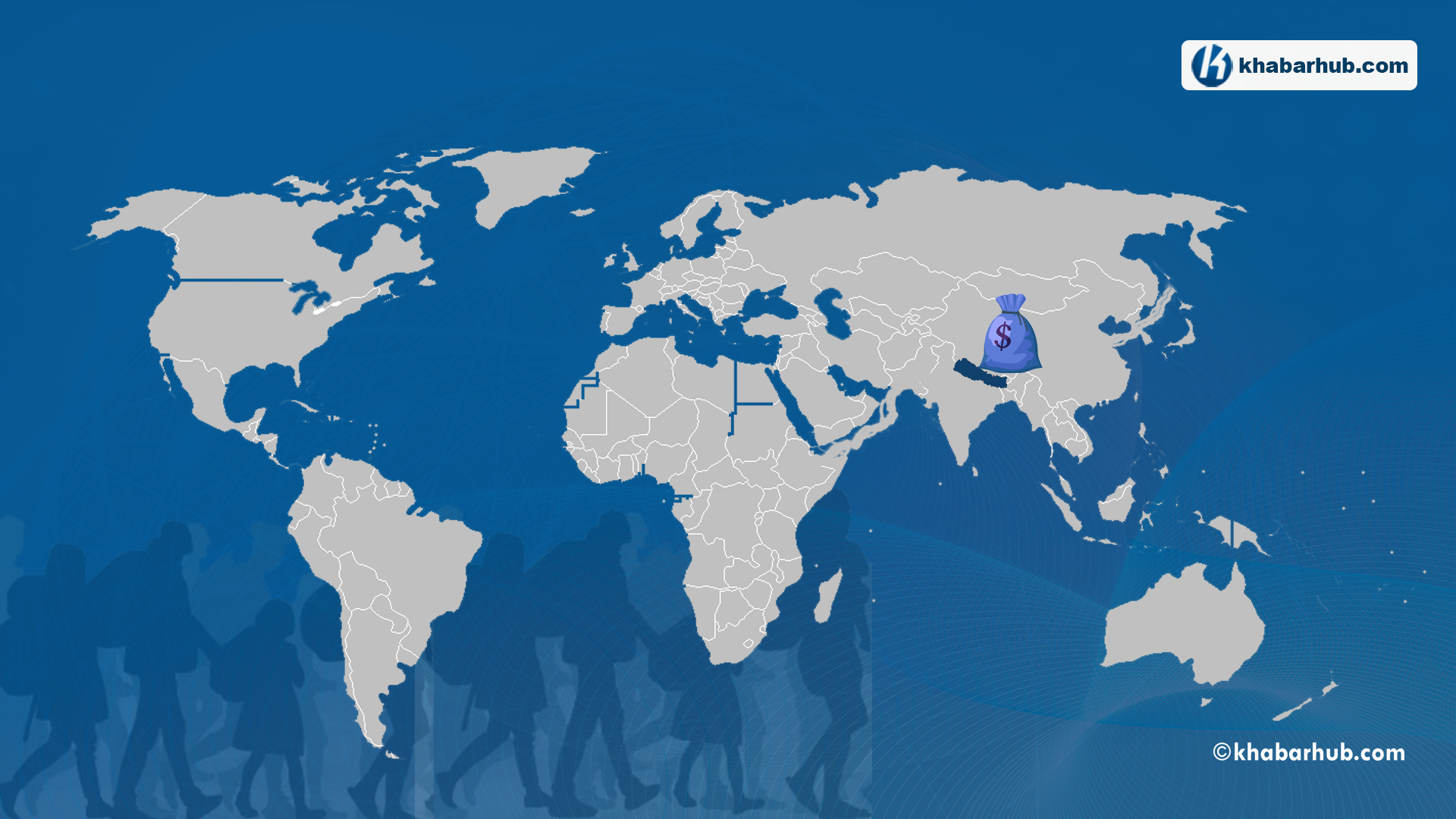0%

KATHMANDU: A large chunk of the remittance coming to Nepal is found to be spent for loan payment.
A remittance inflows report made public by Nepal Rastra Bank made the revelation that the largest chunk of the remittance is spent on paying back the loan taken while going abroad.
The report based on NRB’s survey in 320 households of 16 districts shows that hardly 28% of the remittance goes in saving when 25.3% goes in loan payment, and 23.9% goes in food and clothes.
According to the survey carried out in FY 2014/15, 9.7 % of the remittance is spent in health and education, 3.5 in the family functions and rituals like weddings and bratabandha and 3% is spent for the purchase of domestic property.
Unfortunately, only 1.1% of the remittance is spent on production sector.
Earlier, the livelihood survey conducted on 2010/11 had shown that 78.9% of the was used in domestic consumption, 7.1% in loan payment, 3.5% in education and 4.5% in purchase of domestic purchase. The survey showed that 0.6% of the remittance was saved then.
Although large portion of the remittance is spent on the consumption goods, the expenses made in the sectors like health and education has been acting a catalyst in upgrading the lifestyle.
Similarly, through investment and capital formation remittance has been impacting national economy affirmatively.
However, the decline in remittance inflow is likely to have negative impact on such indicators.
Remittance helped in poverty reduction
Nepal Living Standard Survey 2010/11 showed that remittance played a significant role in poverty reduction in Nepal. According to it 56% Nepali household got remittance then.
31% of the total income was contributed by remittance. 25.2% of the population was below the poverty line then.
Nepal Rastra Bank has given the credit of bringing the population below poverty line to 18.7% in 2017/18 from 30.9% of FY 2003/04 to the contribution from remittance.
The remittance is expected to play pivotal Nepal meet sustainable development goals (SDGs) target of reducing absolute poverty to a single digit.
Gulf Countries the contribute the largest chunk of remittance
Nepal has been entertaining remittance from more than 189 countries of the world. According to Dr. Gunakar Bhatta, the spokesperson at Nepal Rastra Bank, the largest portion of the remittance coming to Nepal is from the Gulf countries. “50.3% of the total remittance comes from gulf countries,” Bhatta said.
The Remittance Inflow Status Report published by Nepal Rastra Bank shows that remittance from Qatar occupies first position in terms of the remittance Nepal has been receiving from various countries. One of the main destination of Nepali workers since ages India occupies second position in the list of remittance providing top countries of the world.
Till November of the current fiscal year, 53.93 billion rupees has been received as remittance from Qatar.
According to the report, 43.16 billion from India, 40.87 billion from UAE, 29.66 billion from Malaysia and 25.42 billion from USA make those countries the 2nd, 3rd, 4th and 5th main remittance contributors for Nepal.
Other major contributors of remittance Japan with 22.87 billion, Kuwait with 11.52 billion, Bahrain with 8.79 billion are in 6th, 7th and 8th position respectively.
Similarly, another popular labor destination Korea lies in 9th position contributing 6.15 billion rupees and leaving United Kingdom behind for 10th position. According to NRB report remittance sent from UK is 5.4 billion. Australia’s remittance contribution is only 1.34 billion when only 18.7 billion is contributed by more than 170 countries of the world.
The remittance from Malaysia, former major labor destination of the country, declined in 2018/ 19.
However, the recent bilateral agreement with Malaysia is likely cause a rise in remittance as more people are heading for their former labor haven.